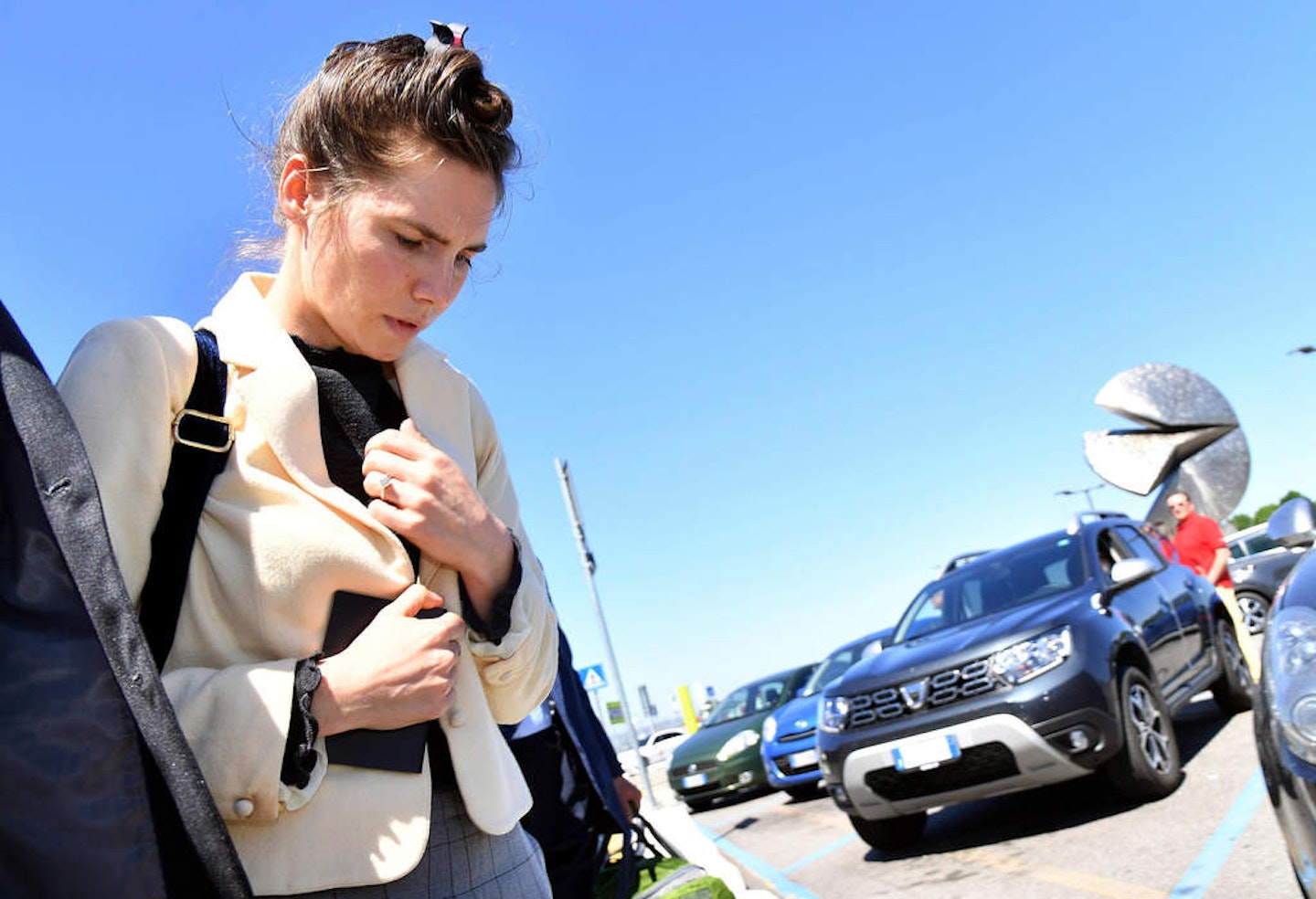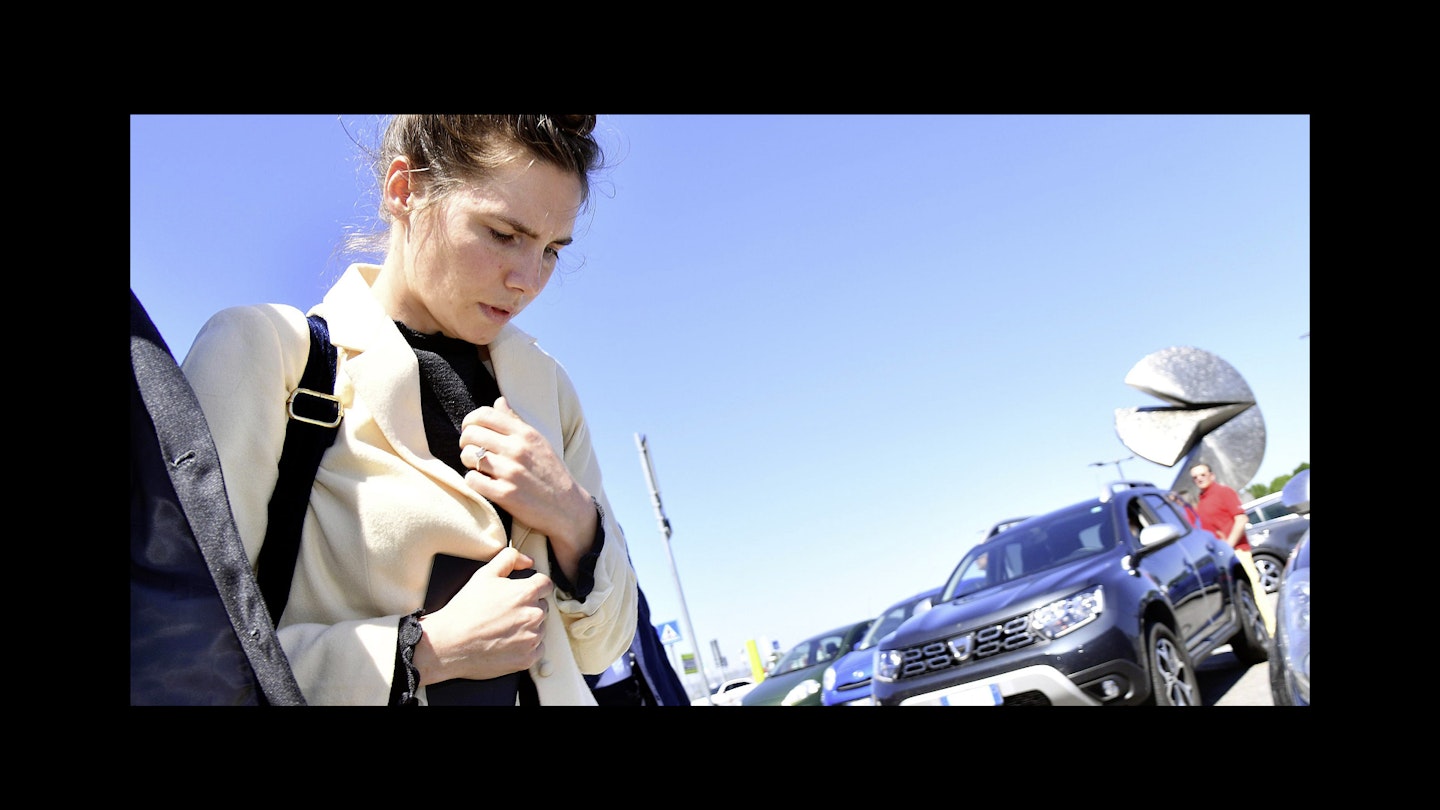Introduction by Lynn Enright
It is nearly 12 years since London student Meredith Kercher, 21, was found dead in Perugia, her body discovered in_____Amanda Knox_ was found guilty of the murder and sentenced to 26 years in prison.
The circumstances surrounding the investigation into the murder of Kercher and the subsequent arrest, trial and conviction of Knox (and Raffaele Sollecito, her then-boyfriend) were horrifying –a pile-up of incompetence, misogyny
Today, Knox is free: the conviction was overturned in 2011 and Rudy Guede– the man whose bloody handprint was discovered at the crime scene – is now in prison, having been found guilty of the murder in 2008. (Italian authorities claimed he hadn’t acted alone during the trials of Knox and Sollecito.)
Despite an ongoing fascination in the case, fanned in part by Amanda Knox____, a 2016 Netflix documentary, Knox now lives a quiet life in her hometown of Seattle, Washington – her Instagram feed is full of goofy selfies and pictures of her cat and fiancé.
These days, she is the host of a true crime podcast: focusing most recently on Jens Soering, currently in prison for murder, whom she believes is innocent. Last week, though, she returned to Italy for the first time since her conviction was overturned. It was an emotional journey for the 31-year-old, who spent four years in prison – but one she says she wanted to make so she could address a conference on miscarriages of justice.
Her appearance at the ‘Trial By Media’ debate, organised by the Italy Innocence Project, was not without controversy: there will always be those who remain suspicious of Knox, despite her acquittal. The Kercher family lawyer came out to say that Knox’s presence there was ‘inappropriate’. And yet, here Amanda Knox herself writes for Grazia, explaining why she made the decision to go back...
I know from experience that media attention often consumes you, and spits you back out as content. I’m tired of being someone else’s content. As I’m returning to Italy, only one outlet bothered to ask me if I might want to write something, in my own words, about why I’m doing this. That outlet was Grazia.
I’ve made the decision to remain mostly silent about my trip because I want my speech at the Italy Innocence Project’s event – about wrongful convictions and trial by media – to speak for itself. I know that whether I choose to give an interview or not, hundreds of outlets will be framing my journey back with their own lens and their own conclusions. They are going to tell the world what it means for me to be returning for the first time since I was released from prison and was rushed out of the country with the help of my family and a former FBI agent. They will say I’m a narcissist, or that I’m brave, or stupid, or that yet again Meredith has been forgotten, completely oblivious to the supreme irony of holding me accountable for what they choose to write about. I also know that some people will write that I’m inspiring, and that makes me feel unworthy.
Amanda arriving in Italy
 1 of 1
1 of 1Amanda arriving in Italy
My story is not unique. Wrongful convictions are not an Italy problem; they happen everywhere. Experts estimate that at least 4% of US convictions are wrongful. That’s based on known exonerations. If that number holds true for the rest of the world, then more than 3,000 innocent people are imprisoned in the UK, and about 2,500 in Italy. These problems are so much larger than me. You out there in the media have a choice: you can write about me, and speculate about my motives, or you can examine your own role in a media culture that all too often flattens three-dimensional humans into caricatures to be hated or celebrated. I’m pointing at the moon. You can look at the moon, or you can look at my finger.
In my own journalism work, I strive to treat subjects with dignity, and to always remember that whatever story I’m telling, it’s still their actual life. Right now, my fiancé Christopher Robinson and I are writing and producing a podcast called The Truth About True Crime for Sundance/AMC. Our latest season is about the double homicide of Derek and Nancy Haysom in Virginia, and the 33-year wrongful imprisonment of Jens Soering.
It’s a case that chillingly echoes my own –a brutal knife killing in a small town, the young lovers as suspects, the media spectacle. Jens Soering has been in prison longer than I’ve been alive and, in many ways, he’s the version of me who was never vindicated. Jens’s case could make for a sensational story, or it could be a deeply human one. In producing a podcast about his struggle, I feel the moral burden of showcasing the humanity of everyone involved. I wish more of our media felt this burden. I wish we remembered that those figures we see in news stories are not just objects, but subjects.
No justice system, and no media, is flawless. The test of a system is whether it can recognise its mistakes, its bad habits, and correct them. I’ve returned to Italy to draw attention to some of those bad habits. It’s the scariest thing I’ve done in a long time, and getting on a plane to head back to the place I was imprisoned sucked the air out of my chest. But I couldn’t not do this.
Drawing attention to how our media and justice system can fail, and how it can do better, is too important to me. You can click on the tabloid stories about what I’m wearing, or what my fiancé’s beard looks like. Or you can choose to care about something that matters. Your choice, even as a reader, as a consumer of media, has real consequences. Choose wisely.
